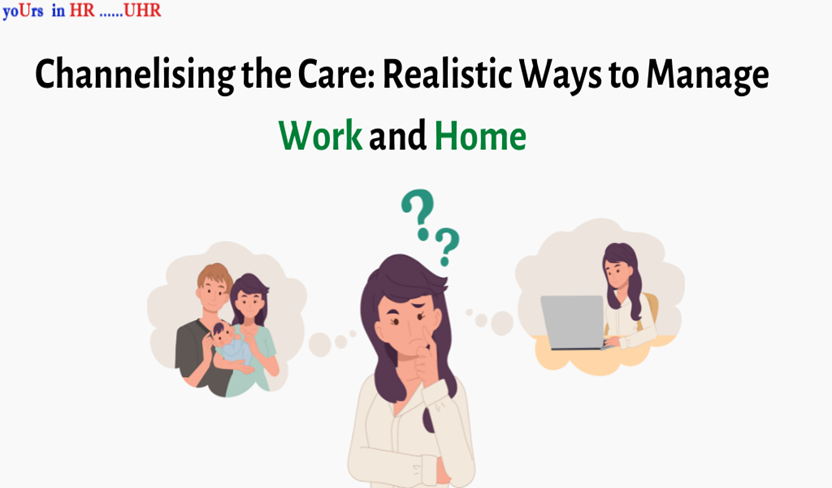
In one of our earlier articles, we talked about working professionals, along with the struggles faced by the two genders, and how it’s necessary that we work with each other, instead of creating battles and rivalries.
Having said that, many working professionals still struggle with missing out on important events from their children’s lives. They often end up feeling drained out and demotivated as they juggle home and work, and often at the expense of the other. Many working professionals might relate with the following anecdote:
Riya was awarded the best administrative professional this month. She had thrown a little treat for her colleagues. It was an occasion to be happy and proud of one’s self. However, Riya seemed gloomy and just not her usual self. When asked if something was wrong, she revealed that although she had got the award, she had missed her son’s school function, and missed her mother’s birthday.
She was questioning her ability to balance work and family.
Sometimes, some of us are slightly lucky, with gracious colleagues and bosses who help us make adjustments. Another anecdote will throw more light on this:
Rajeev was not in mood that day, while his boss noticed, and asked what happened? Rajeev confided that it was annual function in his daughter’s school and she had participated in it. He will not be able to attend because of the urgent meeting today. To this the boss grants him two hours short leave to attend and come back, and then give the presentation at the meeting; the boss felt that since he had everything prepared, it won’t be difficult. Rajeev was grateful to his boss and quickly attended the event and returned.
Whether you are a man, or a woman, such scenarios might be very familiar to many of you. It is a sad reality of our times.
What are some realistic things working professionals can do to balance the home and the work front?
Communication and honesty:
The first step is to admit that you are struggling, that you are indeed missing out on certain events, sometimes in the home sphere, and sometimes in the work sphere. Honesty to one’s self is the first step. The pressure to be the perfect employee and the perfect parent can be draining. Once you admit to yourself that you are struggling, you can communicate this concern to your colleagues and bosses. You can also take your family and children into this communication, in fact, and ask everyone (at home and at work) what their expectations are from you, and what sort of event means how much to them. The next step is to communicate what are the things that you will be able to manage, and what are the things that might need some management of expectations from their end. Note that you may also have to manage the expectations you have from yourself.
Once you have expressed your concerns, the next step is to prioritise.
Prioritise and set boundaries:
Some events at home could be more important than some events at work, and vice versa. Sometimes it is not even about the scale of events, as much as what the event means to someone. As you take stock of what’s on your plate, make clear distinction between what can be absolutely not missed at any cost, for both spheres. A basic rule of thumb is to communicate to your colleagues that you need to attend an event beforehand, and not leave it until the last minute as much as possible as was seen in the second anecdote.
While being polite and respectful about the communication to your colleagues, be unapologetic to that little inner-voice that makes you wonder if something can be compromised. That inner-voice might also tell you that you will be able to manage everything, and that you don’t need to say no to anything.
But you need to remember that it is about quality over quantity. It is about attending that one important meeting, where you let go of the event at school that doesn’t mean much to your child, and it is about attending the event (big or small) that means the most to your child, and letting go of that one meeting where you don’t even need to be present. You can also team up with your spouse, and coordinate as to who will be attending office on the day of the child’s event, and who would attend the event.
As you try to lighten the burden of expectations over your shoulders, the most important thing is to be kind to yourself. Letting go of the guilt that comes with missing out on something, whether at work or at home could be an unrealistic thing to think about: the guilt might stay.
But what can be done is to at least understand that the guilt is a natural response, and that it simply shows that you care. Channelising that care in the right direction, at the right time, through realistic expectations and decisions is what matters.

